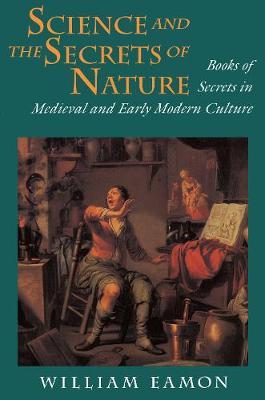By explaining how to sire multicoloured horses, produce nuts without shells, and create an egg the size of a human head, Giambattista Della Porta's "Natural Magic" (1559) conveyed a fascination with tricks and illusions that made it a work difficult for historians of science to take seriously. Yet, according to William Eamon, it is in the "how-to" books written by medieval alchemists, magicians and artisans that modern science has its roots. These compilations of recipes on everything from parlour tricks through medical remedies to wool-dyeing fascinated medieval intellectuals because they promised access to esoteric "secrets of nature". In closely examining this little-known source of literature, the author of this study reveals that printing technology and popular culture had as great, if not stronger, an impact on early modern science as did the traditional academic disciplines. Medieval interest in the secrets of nature was spurred in part by ancient works such as "Pliny's Natural History".
The crude experimental methodology advanced by the "professors of secrets" became for the "new philosophers" of the 17th century a potent ideological weapon in the challenge of natural philosophy.
- ISBN10 0691034028
- ISBN13 9780691034027
- Publish Date 24 April 1994
- Publish Status Out of Print
- Out of Print 30 June 2003
- Publish Country US
- Imprint Princeton University Press
- Format Hardcover
- Pages 512
- Language English
- URL https://press.princeton.edu/titles/5510.html
